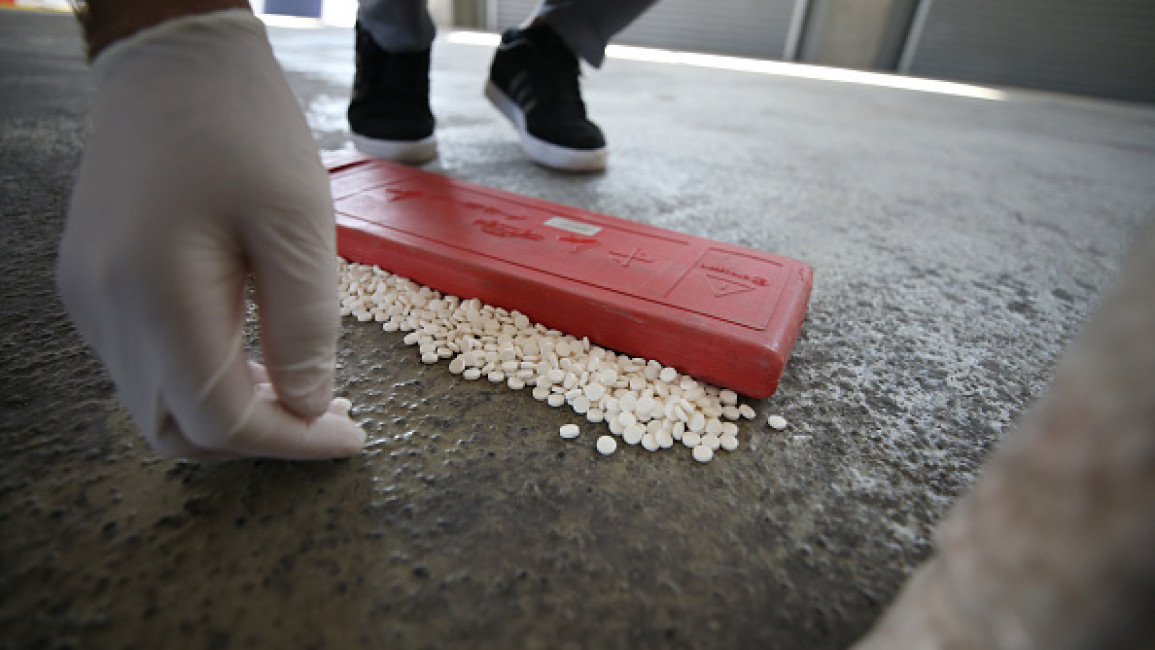Syria reaffirms its commitment to fighting drug trafficking, despite accusations of its complicity in regional network
The Syrian permanent representative to the UN on Thursday presented his credentials to the United Nations Office of Drugs and Crime (UNODC), a body tasked with combatting drug trafficking and international crime.
Hassan Khadour, the Syrian representative, discussed "reactivating cooperation with the UN office on (…) combating drug smuggling and cross-border smuggling", according to Syrian regime media outlet SANA.
The "reactivation" of Syria’s cooperation with the UNODC comes despite deep suspicions that the Syrian regime is engaged in drug trafficking throughout the Middle East and Europe.
A recent investigation by the Organized Crime and Corruption Reporting Project (OCCRP) detailed how the Syrian regime-controlled port of Latakia was linked to at least two seized vessels carrying Captagon and hashish. One of the two vessels was seized by Italian authorities and was carrying over $1 billion worth of Captagon - an amphetamine popular in the Middle East and infamous for being used by IS fighters before battle.
A 2020 report by the UNODC also identifies Syria as a source country for Captagon, though it attributes the trade to non-state groups rather than the Assad regime itself.
The drug trade has been linked to the cousin of Syrian President Bashar al-Assad, Samer Kamel Al-Assad, who is alleged to run several factories in Latakia. The sheer size and scale of shipments being exported from Syria also suggest that there is some official involvement. According to the OCCRP report, the illicit drug trade is estimated to net Syria some $16 billion a year - equivalent to about 75 percent of Syria's 2019 GDP.
Syria has few exports of significant value and its economy has collapsed in the last two years due to a combination of rampant corruption, sanctions, and the cumulative effect of a decade of civil war. A $16 billion cash cow - if estimates prove correct - would be a vital lifeline for a regime and country struggling to stay afloat.
The drug trade has also caused problems for neighboring Lebanon, which is frequently used as an outlet for Syrian drugs.
Lebanese produce was banned from Saudi Arabia in late April after Saudi customs officials found pomegranates stuffed with millions of Captagon pills. The pills were suspected to have originated from either Syria or Hezbollah. Reportedly, Saudi officials are mulling a complete ban on Lebanese imports due to continued issues with drug trafficking from the country.
This is the second time in the past month that controversy erupted over Syria's role in the UN. In late May, Syria was given a seat on the WHO's executive board, causing outrage among protesters who pointed to the Syrian regime's systematic targeting of healthcare facilities throughout the civil war.
The New Arab reached out to UNODC for a comment but as of the time of publication, it had not received a response.



